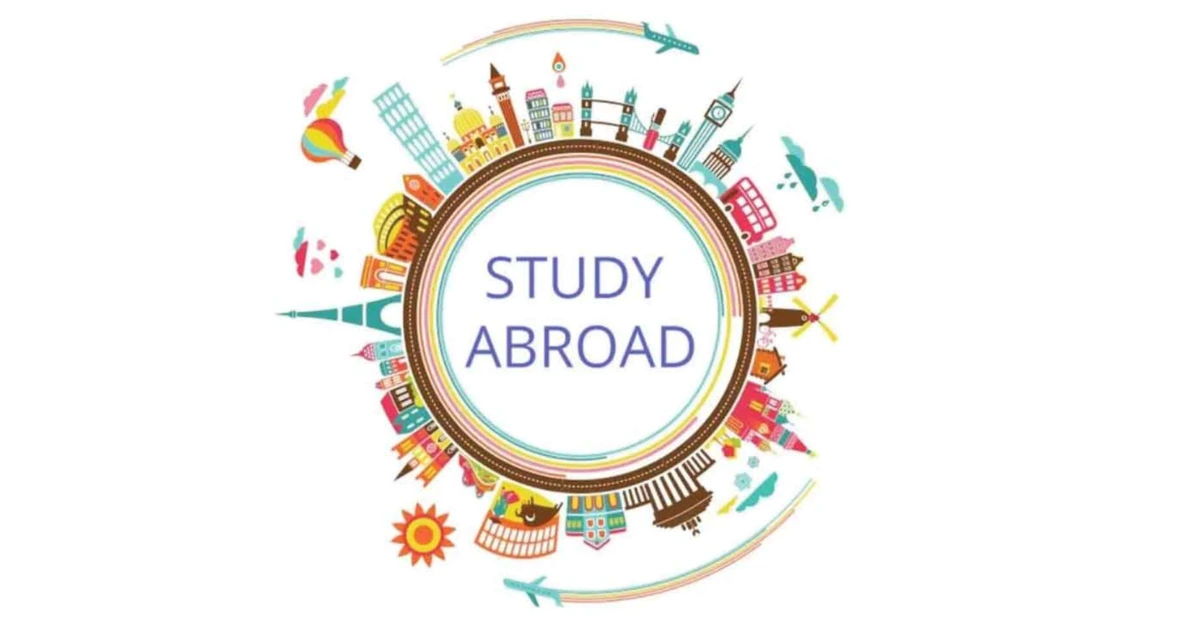



Many Indian students choose to pursue higher education abroad, which can be costly. The cost of tuition fees and living expenses varies significantly between different countries. Popular destinations like the United States, the United Kingdom, and Canada are generally more expensive than other options. Specific degree programs, such as those in medicine or engineering, can be more costly than others. Moreover, personal spending habits and choices regarding accommodation, food, and other expenses can significantly impact the overall cost.
A report shows that in 2022, Indian students spent approximately US$47 billion annually studying abroad. This includes various expenses, such as tuition fees, living costs, travel expenses, and other miscellaneous expenses. The tuition fees were estimated at around $34 billion, making it the most significant expenditure.
The accommodation expenses included rent, utilities, and other housing costs, estimated to be around $1.3 billion. The living costs category encompasses all other expenses like food, transportation, clothing, entertainment, and miscellaneous items. It’s estimated to be around $1.2 billion and is heavily influenced by individual spending habits and the cost of living in the chosen country.
It’s essential to remember that the costs associated with studying abroad are just averages and may vary depending on your circumstances. To get a more precise estimate, it’s essential to research the program and university you’re interested in and consider your personal lifestyle choices.
The “Indian Student Mobility Report, 2023”, published by University Living, is a valuable resource for gaining insights into the behaviour and trends of Indian students who pursue higher education abroad.
The report covers various aspects, such as the number of students studying abroad, the most popular destinations, and the preferred fields of study. Additionally, the report also examines the challenges faced by Indian students, which include accommodation difficulties, financial concerns, cultural adjustment, and academic hurdles.
The report offers insights into specific countries, providing a detailed analysis of popular destinations, including the US, UK, Canada, and Australia. It covers these countries’ visa processes, scholarship options, and cost of living. Additionally, the report contains trustworthy recommendations for stakeholders such as universities, policymakers, and student support organizations.
As per this report, the number of Indian students studying abroad exceeded 1 million in 2019 and is expected to reach between 1.5 and 2 million by 2025, according to the Indian Student Mobility Report 2023!
An interesting excerpt from the “Indian Student Mobility Report, 2023”! The report highlights the distribution of Indian students pursuing higher education abroad across different regions. According to the report, the top three states contributing to this trend are Punjab, Andhra Pradesh/Telangana, and Maharashtra. Together, these states account for 12.5% of the total number of students going abroad. This shows a significant concentration of international education aspirations within these regions.
The Secondary Group comprises three states – Gujarat, Delhi, and Tamil Nadu – each making an 8% contribution. It indicates that many students from these states are also studying abroad. The rest of the states collectively account for 33% of students studying overseas, indicating a more widespread pattern of outbound mobility across different regions of India.
Overseas education can be too expensive for many students, especially those from marginalized communities or underprivileged backgrounds. However, targeted scholarships and financial aid could act as a bridge, opening doors to opportunities that would otherwise be closed. There are concerns about the “brain drain” phenomenon, where talented students choose to stay abroad after graduation. To address this, scholarships with a return-to-India clause could encourage students to contribute their skills and knowledge to the national development upon completing their studies.
Moreover, specific scholarships could be offered for fields deemed critical to India’s economic and technological advancement, attracting talent to study relevant disciplines.
One of the biggest challenges Indian students studying abroad face is finding suitable accommodation. However, the government can play a crucial role in helping them overcome this difficulty. A comprehensive online platform that lists verified and reliable housing options in popular study destinations should be created. This platform could be equipped with filters based on budget, location, type of accommodation, and specific student needs.
To provide students with the necessary support, universities abroad and Indian student organizations should be partnered with to offer housing information, recommendations, and access to local support networks. Additional workshops or webinars could be organized to equip students with practical information about finding housing, understanding rental agreements, and accessing resources for assistance.
The current housing situation for students studying abroad comes with several challenges. Key stakeholders on the supply side need to work together collaboratively to create a more supportive and positive environment. In the earlier session, we saw what the government can do. Below are some suggestions for what others can do to help improve the situation.
1. Universities and educational institutions
Investing in on-campus housing is a great way to expand and maintain quality accommodation options for international students. In addition, partnering with off-campus housing providers can be beneficial. This involves establishing relationships with reliable and student-friendly landlords and housing agencies, ensuring appropriate vetting, and providing resources and support for students navigating off-campus living. Providing guidance and resources is also important. This can include workshops, mentorship programs, and online guides to equip students with essential information about finding safe and suitable housing, understanding rental agreements, and navigating local housing regulations.
2. Student organizations and support groups
Creating strong networks and communities where students can share information, connect and offer support is essential during the housing search process. They collaborate with universities and governmental agencies to advocate for fairer tenant rights, better regulations, and policies that protect international students in the housing market. They also provide information and referrals to local NGOs, support groups, and legal aid services that can assist students facing housing difficulties.
3. Housing providers and landlords
Developing policies that are student-friendly is essential to attract and retain international students. These policies should include flexible lease terms, reduced security deposits, and streamlined rental processes. Additionally, considering many international students’ financial constraints, investing in the quality and affordability of accommodations is crucial. This can be achieved by maintaining well-equipped and well-maintained accommodations at reasonable prices.
By working together, these key stakeholders can transform the study abroad student housing landscape into one that is safe, affordable, supportive, and conducive to academic success and personal growth. This collaborative approach requires an open and transparent dialogue, a willingness to invest in solutions, and a commitment to the well-being of international students.
So, let’s get ready for the 2025 education journey!
Do you have any specific concerns or aspects you want to explore further? We are happy to provide more information based on your interest.
Please feel free to reach us at https://remitforex.com/services/contact.html.

